guide to confession for kids
Confession is a special way for kids to talk to God through a priest‚ seeking forgiveness for mistakes and growing closer to Him. It’s a caring and supportive experience designed to help children understand God’s love and mercy‚ fostering a deeper spiritual life. This guide will help kids prepare and understand the sacrament step-by-step‚ making it a positive and meaningful encounter.
1.1 What is Confession?
Confession‚ also known as the Sacrament of Reconciliation‚ is a special way for kids to talk to God through a priest. It’s a time to admit mistakes‚ say sorry‚ and ask for forgiveness. Through confession‚ kids can receive God’s mercy and guidance‚ helping them grow closer to Him. This sacrament is a caring and supportive experience where children can reflect on their actions‚ pray for strength‚ and learn to make better choices. It’s a beautiful way to restore their relationship with God and feel His loving forgiveness.
1.2 Why is Confession Important for Kids?
Confession is important for kids because it helps them understand God’s mercy and love. It teaches them to take responsibility for their actions‚ reflect on their behavior‚ and seek forgiveness. Through confession‚ kids learn to grow spiritually‚ develop a stronger faith‚ and build a closer relationship with God. It also helps them foster self-awareness‚ honesty‚ and humility. By confessing their sins‚ children experience healing and peace‚ allowing them to start fresh and make better choices. This sacrament guides them toward a life of virtue and helps them become compassionate and responsible individuals‚ rooted in God’s love and forgiveness.
1.3 A Brief Overview of the Confession Process
Confession involves several simple steps. First‚ kids enter the confessional and greet the priest. They start by praying together‚ often the Sign of the Cross or a short prayer. Next‚ kids tell the priest their sins honestly and clearly. The priest offers guidance‚ forgiveness‚ and a small penance‚ like praying a few prayers. Finally‚ kids thank the priest and leave‚ feeling refreshed and closer to God. This process helps kids experience God’s mercy and grow in their faith‚ teaching them to take responsibility for their actions and start anew with a clean heart.
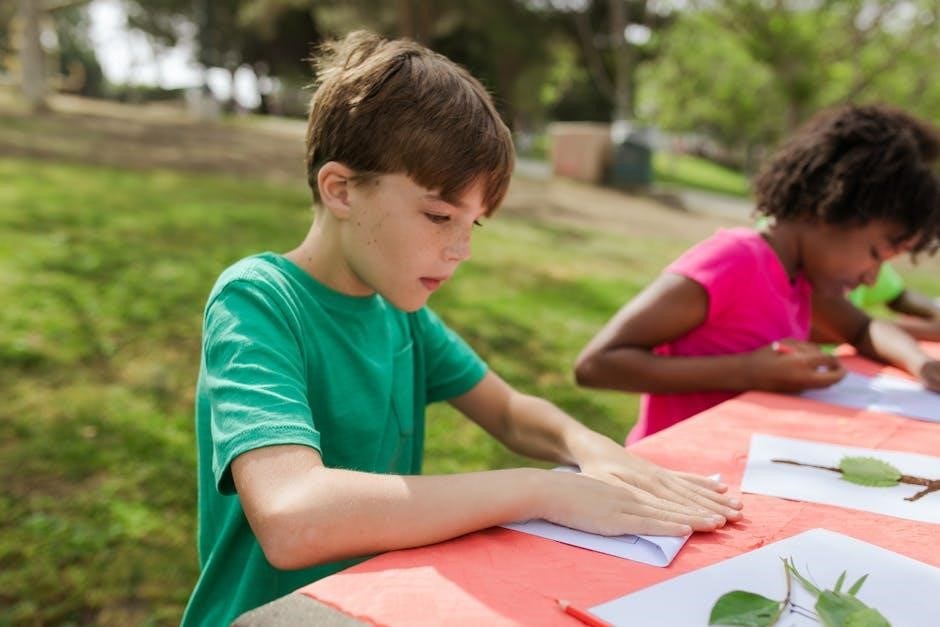
Preparing for Confession
Preparing for confession involves examining your conscience‚ using guides like the Ten Commandments and Seven Capital Sins‚ and writing down your sins to ensure honesty and clarity.
2.1 Examining Your Conscience
Examining your conscience helps kids reflect on their actions and identify sins. Using the Ten Commandments and Seven Capital Sins as guides‚ they can thoughtfully consider where they may have fallen short. This reflection fosters honesty and readiness for confession‚ encouraging kids to take responsibility for their mistakes. By prayerfully asking for God’s help‚ they can better understand their actions and feelings‚ making their confession sincere and meaningful. This step is crucial in preparing their hearts to seek forgiveness and grow closer to God.
2.2 Using the Ten Commandments and Seven Capital Sins as Guides
The Ten Commandments and Seven Capital Sins are helpful tools for kids to identify sins. The Ten Commandments‚ like “Honor your father and mother” and “Do not lie‚” guide children to reflect on their actions toward others. The Seven Capital Sins—pride‚ envy‚ anger‚ greed‚ gluttony‚ lust‚ and sloth—help them recognize negative feelings or behaviors. By thinking about these guides‚ kids can pinpoint specific mistakes‚ such as disobeying parents or being unkind. This structured approach makes it easier for them to understand and acknowledge their sins‚ preparing them for a sincere confession and fostering a stronger connection to God’s teachings.
2.3 Writing Down Your Sins
Writing down your sins is a helpful way to prepare for confession. It allows kids to clearly remember what they need to share with the priest. Using a piece of paper or a mobile app‚ they can list specific actions or thoughts that they feel sorry for. This helps them stay focused and ensures they don’t forget anything important. Writing down sins also makes the confession process less nerve-wracking‚ as it provides a simple guide to follow. It’s a practical step that helps kids take responsibility for their actions and approach the sacrament with honesty and clarity‚ fostering genuine remorse and growth.
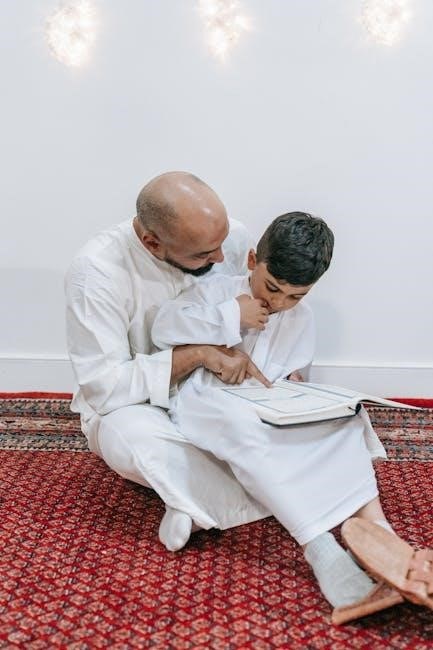
Praying Before Confession
Praying before confession helps kids ask for God’s guidance and forgiveness. It prepares their hearts to honestly share their sins and seek His mercy with sincerity.
3.1 Praying for Guidance and Forgiveness
Praying for guidance and forgiveness before confession is essential for kids to open their hearts to God. They ask the Holy Spirit to reveal their sins and grant them the courage to confess. This prayer helps them express sorrow and seek strength to avoid future mistakes. By humbly praying‚ children can approach confession with a contrite heart‚ ready to receive God’s mercy and grace.

3.2 A Simple Prayer to Use Before Confession
A simple prayer before confession can help kids focus their hearts. They can say: “Dear God‚ I come before You with a sorrowful heart. Help me see my sins and be truly sorry for them. Give me the courage to confess them honestly. Forgive me‚ Lord‚ and guide me to live according to Your will. I resolve to avoid sin and follow Your path. Amen.” This prayer prepares them to seek forgiveness and strengthens their commitment to grow closer to God;

The Confession Process
Confession involves entering the confessional‚ starting with a prayer‚ telling sins clearly to the priest‚ and receiving guidance and penance. It’s a gentle‚ forgiving experience focused on healing and growth.
4.1 Entering the Confessional
Entering the confessional is a calm and respectful experience. Kids should approach with an open heart‚ ready to share their thoughts and feelings. The confessional provides a private and safe space to talk with the priest. It’s important to remember that the priest is there to help and guide‚ not to judge. Taking a deep breath and being honest is key. The process begins with a prayer‚ setting a peaceful tone for the conversation. This moment is an opportunity to connect with God and seek His forgiveness‚ feeling supported every step of the way.
4.2 Starting with a Prayer
Starting with a prayer helps set a reverent tone for confession. Kids can begin by thanking God for His love and asking for guidance. A simple prayer like‚ “Lord‚ help me be honest and open. Forgive my sins and guide me to be better‚” can be used. This moment of prayer prepares the heart to confess sincerely. It reminds children that they are speaking to God through the priest‚ seeking His mercy and grace. Taking a deep breath and speaking from the heart makes the experience meaningful and uplifting.
Prayer helps children feel calm and ready to share their thoughts openly.
4.3 Telling Your Sins Clearly
Telling your sins clearly is an important part of confession. Kids should speak loudly and confidently‚ using their own words to explain what they’ve done wrong. For example‚ instead of saying‚ “I wasn’t good‚” they could say‚ “I disobeyed my parents” or “I hurt someone’s feelings.” It’s okay to ask for help if they’re unsure what to say. Being honest and specific shows that they’re taking responsibility for their actions. Remember‚ the priest is there to help‚ not to judge. Taking a deep breath and speaking from the heart makes the confession sincere and meaningful.
This step brings healing and peace.

After Confession
After confession‚ kids feel peaceful and renewed. They make a firm resolution to avoid sin and complete the penance given by the priest; This strengthens their faith and helps them grow closer to God‚ feeling forgiven and ready to start fresh.
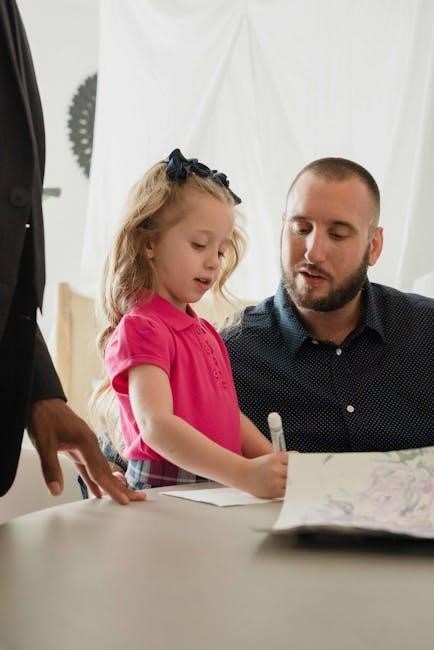
5;1 Making a Firm Resolution
Making a firm resolution after confession means promising God you’ll try your best not to sin again. It’s like saying‚ “I’ll work hard to be better!” Kids should think about what they can do to avoid the same mistakes. Maybe they’ll pray more‚ be kinder‚ or listen to their parents. It’s important to ask God for help and remember He loves them no matter what. This step helps kids grow in faith and shows they’re serious about changing. It’s not about being perfect but about trying their best and staying close to God.
5.2 Doing the Penance
After confession‚ doing the penance assigned by the priest is an important step. Penance might be praying specific prayers‚ doing a small task‚ or reflecting on your actions. It’s a way to show you’re serious about changing and growing closer to God. For kids‚ penance is usually simple‚ like saying a few prayers or helping someone. It’s not meant to be hard but to help you remember to try your best to avoid sinning again. Doing your penance shows love for God and commitment to being better. Remember‚ God is always happy to help you grow!
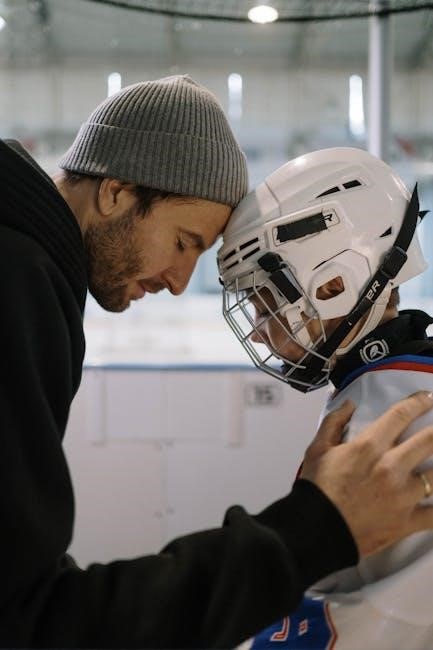
Follow-Up
After confession‚ reflect on how it went and continue praying to grow closer to God. Keep practicing confession to strengthen your faith and relationship with Him.
6.1 Reflecting on the Experience
After confession‚ take time to reflect on how you felt. Think about the relief and peace God gives you. This helps you learn and grow from your mistakes. Remember‚ confession is a positive step toward being closer to God; It’s okay to feel happy or even a little shy‚ but know that you’re loved. Reflecting helps you see how confession makes you stronger and more honest with yourself and God. Always remember‚ God is always ready to forgive and help you be your best self. This reflection makes each confession a special and meaningful experience for kids.
6.2 Continuing to Pray and Grow
After confession‚ keep praying to stay close to God and grow stronger in your faith. Prayer helps you ask for guidance‚ strength‚ and forgiveness every day. It’s important to talk to God regularly‚ even when you’re not in church. Say sorry when you make mistakes and thank Him for His blessings. Prayer helps you avoid sin and become the best version of yourself. Encourage kids to make prayer a habit‚ like talking to a friend‚ to keep growing spiritually and feeling God’s love in their lives. This helps them stay connected to God and live happily with His support.
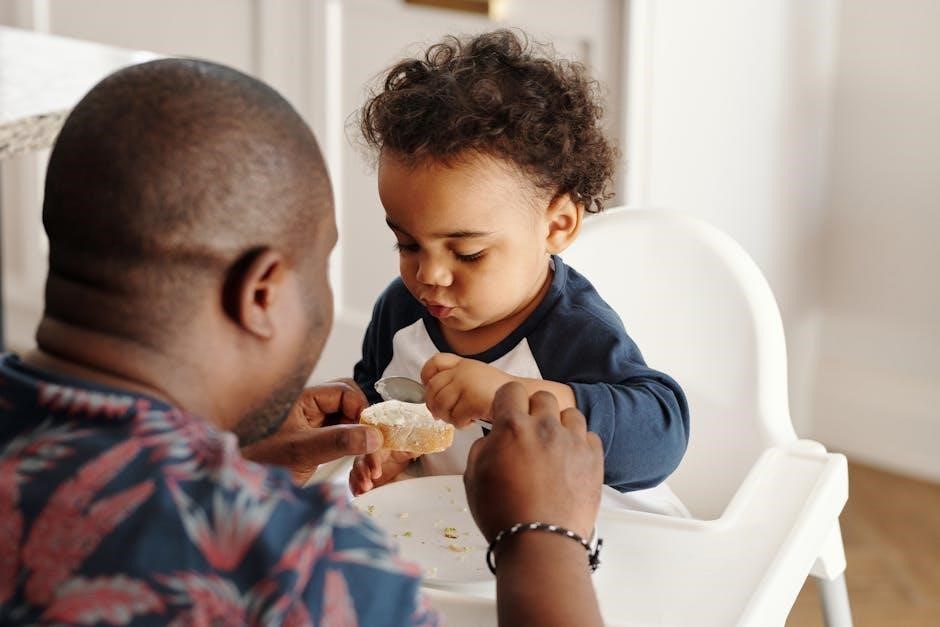
Encouragement and Support
Kids need encouragement to embrace confession. Remind them that everyone makes mistakes and that God loves and forgives. Offer support by talking openly about confession’s benefits and how it helps grow closer to God. Encourage them to pray and seek guidance from priests‚ family‚ or friends. Let them know confession is a positive step toward healing and peace‚ helping them feel better and grow stronger in their faith.

7.1 Overcoming Fear or Nervousness
It’s normal for kids to feel nervous about confession. Reassure them that everyone feels this way sometimes‚ even adults! Encourage them to pray for courage and remember that the priest is there to help‚ not judge. Remind them that God loves them and wants to forgive. Suggest talking to a trusted adult or priest beforehand to ease their fears. Writing down their sins can also help them feel more prepared. Let them know confession is a safe and caring space to grow closer to God‚ and that it brings peace and relief. Focus on the positive outcome!
7.2 The Benefits of Regular Confession
Regular confession helps kids grow spiritually and understand God’s loving mercy. It teaches them to take responsibility for their actions and seek forgiveness‚ fostering a stronger relationship with God. By regularly examining their conscience‚ children develop self-awareness and a habit of prayerful reflection. Confession also provides peace of mind‚ knowing they’ve been forgiven‚ and encourages them to make better choices. Over time‚ this practice helps build their moral character and strengthens their faith‚ guiding them toward a life of love and service to others‚ while deepening their trust in God’s endless love and forgiveness.